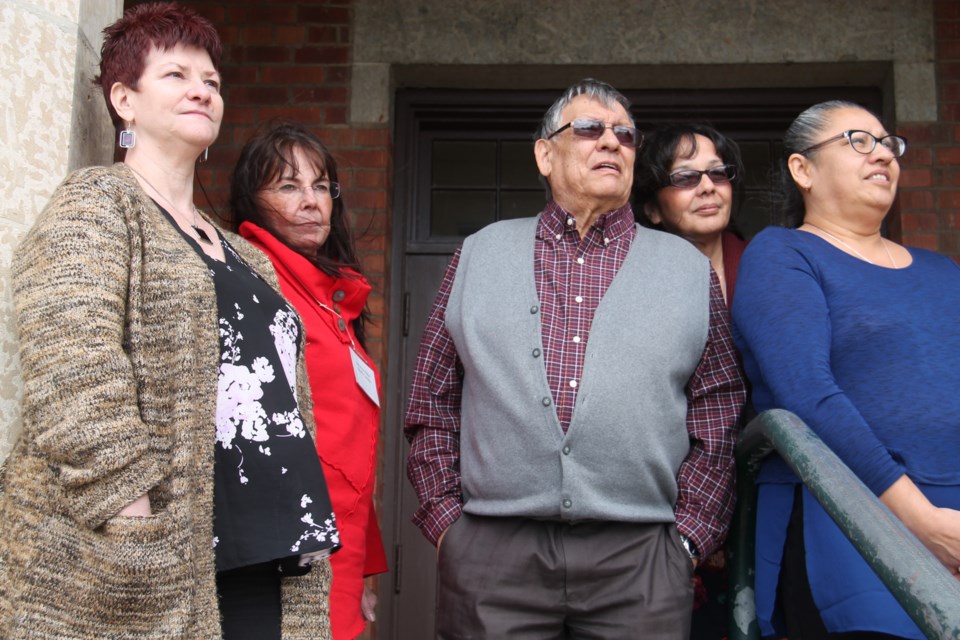Indian residential school survivors, and those trained to help them, are gathering in Sault Ste. Marie Tuesday through Thursday.
Annual training and activities, both formal and fun-oriented, are going on at the Delta Hotel and the Etienne Brule Room for health support and cultural support workers involved in the Ontario Indian Residential School Support Services program.
“We have a number of staff, male and female, who try to meet survivors needs,” said Claudette Chevrier, Ontario Indian Residential School Support Services cultural support worker, speaking to SooToday.
There were approximately 10 Shingwauk Indian Residential School survivors on hand for lunch and a tour of the former residential school site at Algoma University Tuesday.
“The program is so successful because it started with former Indian residential school students helping other former students,” Chevrier said.
Now, younger workers are coming on board and being trained through the program, which has been going on for the last decade.
“With that cultural support person, they (survivors) sit down and do whatever is necessary, whether its (indigenous) medicines, a sweat lodge, ceremonies, sharing circles (to talk it all out), maybe even give them some medicines to carry on them, like tobacco or medicine pouches,” Chevrier said.
One of the issues to deal with is intergenerational trauma.
“People were taken away from their families and traumatized as children, so that the love, family connection, that bond was missing, and that got passed on to their children, so they grew up not knowing how to parent,” explained Lori Rainville, Ontario Indian Residential School Support Services health support worker.
“Some people are still dealing with that today,” Rainville said.
“It (the Shingwauk site) is becoming a very popular site in terms of it being a former residential school, along with the Mohawk Institute (also known as the Mush Hole) in Brantford,” Chevrier said.
There was a great deal of bread, milk and vegetables produced on the land surrounding the Shingwauk Residential School site by its students through their daily duties, but all of it went to the non-native population of Sault Ste. Marie, and the Shingwauk children themselves fed mush, Chevrier said.
“The truth is like cream and it always floats to the top and this is where we are in history now,” Chevrier said, referring to greater awareness of the Indian Residential School experience.
“It (Shingwauk) has morphed (into Algoma University), where now the mandate of the school is to educate and work alongside native people so that we can teach non-natives and the non-natives can teach us, and that goes directly with the vision of Chief Shingwauk,” Chevrier said.
“We’re finally getting to that dream and that vision.”
The Ontario Indian Residential School Support Services program is funded by the federal government through Health Canada.
“As long as there are residential school survivor hearings, they will require health support.”
There are outstanding, ongoing Indian Residential School hearings, such as that regarding St. Anne’s in Fort Albany, Ontario.
Workers gathered in the Sault for the three day conference come from the Sault and area, as well as across the province.
There are approximately 40 Ontario Indian Residential School Support Services workers across Ontario.
